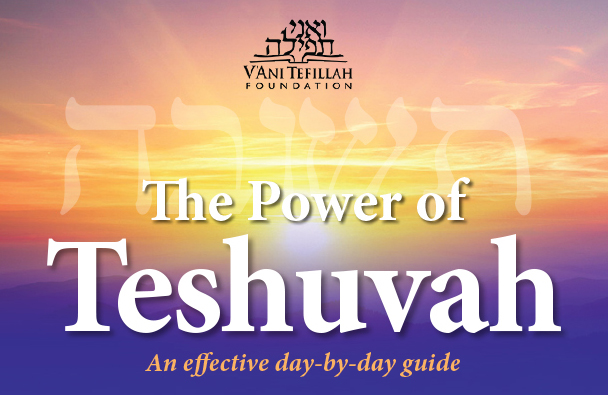The Power of Teshuvah – Day 25

Day 25
Strategy 5: Damage Control
Shmuli accidentally threw a ball through Mr. Stein’s window. The glass shattered all over the kitchen table, where several platters of smoked fish waited to be taken into the dining room. There, Mr. Stein’s guests were seated, ready to celebrate his 70th birthday. The noise frightened the Steins’ daughter, who jerked her hand and spilled her cup of fruit punch on the couch where she was seated. The punch dripped onto the carpeting. Mrs. Stein injured her back trying to scrub the stain.
When Shmuli’s father called and offered to pay to replace the windowpane, Mr. Stein’s response was, “That doesn’t begin to pay for all the damage!”
If the Steins sued Shmuli’s family for the damage done by his ball, it is doubtful whether the judge would be able to calculate the total value of the ruined birthday party, Mrs. Stein’s pain, the guests’ discomfort on one hand, and Shmuli’s embarrassment on the other. God, however, judges with absolute accuracy, calculating every harm arising from a person’s misdeed.
The all-encompassing nature of God’s judgment is illustrated in the narrative of the world’s first murder. After Kayin killed his brother Hevel, God inquired, “What have you done? The sounds of your brother’s bloods cry out to Me from the ground.” The plural form of the word “dam” (blood) indicates that Kayin not only killed his brother, but he also killed his descendants. A person’s value is not assessed only according to what he is at the moment; it encompasses the vast potential in each person.
No one can accurately assess the ultimate impact of a sin. Therefore, the spiritually sensitized person sees the potential harm as too great to risk. He strives to avoid any sin and to perform teshuvah to erase any sin he might have committed.
When Rabban Yochanan ben Zakkai was on his deathbed, his students came in to visit him. When he saw them, he began to cry: “I have two paths before me: one leading to Gan Eden and one leading to Gehinnom and I do not know on which path they are taking me. Should I not cry?”
When the saintly Rabban Yochanan saw his students, he became acutely aware of the vast breadth of his potential liability in his dealings with them. Not only the students standing before him, but their children, grandchildren, and great-grandchildren would be affected by mistakes he might have made. Realizing that he would be held accountable for all of this, he became afraid and doubtful as to his place in Gan Eden.
The precision of God’s justice is something that is simple to understand; Hashem is truthful. That is what Moshe Rabbeinu meant when he said, “The Rock — perfect is His work, for all His paths are justice.” His judgment applies to everyone and He punishes all sins.”
This implies that there is no way to escape liability for a sin, and yet a different verse states that God will forgive us. In fact, both are true. Teshuvah is the distinguishing factor, the means God has given us to remake ourselves over and over again, each time closer to His image.
Points to Ponder:
-
-
- God’s justice is precise, taking all contingencies and outcomes into consideration.
- Teshuvah absolves us of our transgressions, along with any potential effect.
-

